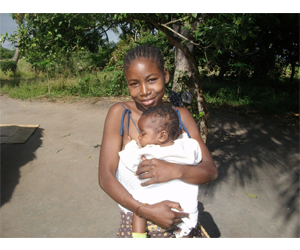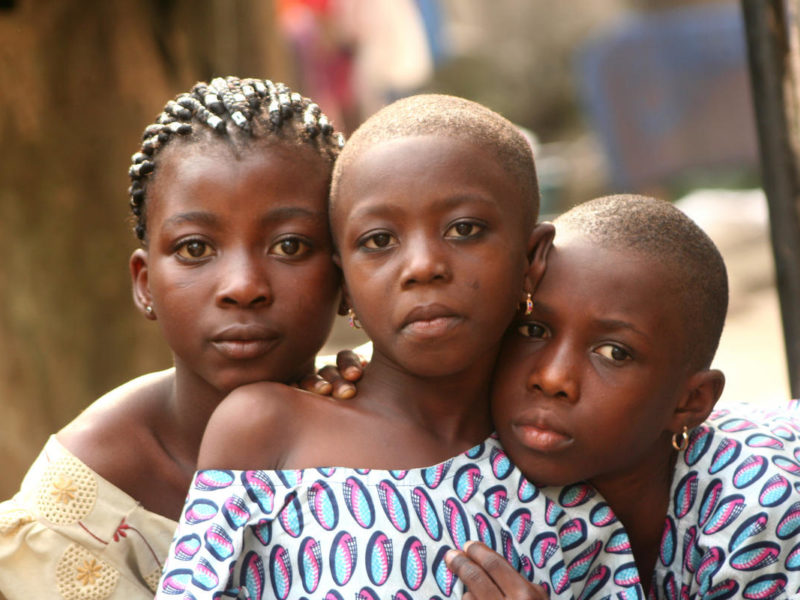A young girl gains the means to support her baby and avoid HIV infection.
Dulce is a 13-year-old girl who lives in Nicoadala District, Mozambique. She comes from a poor family and recently gave birth to her first child. During Dulce’s pregnancy, her mother, Chica, was shocked to learn the baby’s father was married, in his late twenties, and owned a small business in their village.
Chica reported the man to the police, who found him guilty of failing to provide financial compensation to Dulce and her family after victimizing the young girl. The man subsequently promised to support the baby. However, he moved away from Nicoadala shortly thereafter and did not live up to his word.
Fortunately, Dulce and her family were able to receive help from their community and the Go Girls! Initiative (Go Girls!), a program funded by the U.S. President’s Emergency Plan for AIDS Relief through the U.S. Agency for International Development.
Go Girls!, a comprehensive program to reduce girls’ vulnerability to HIV infection, had several components, including two that were particularly helpful in Dulce’s case: Community Mobilization and Community-based Life Skills. The first worked with Dulce’s village to develop a Community Mobilization Facilitating Group that guided the village to recognize girls’ vulnerability to HIV, identify the root causes of this vulnerability, and encourage community action to reduce girls’ vulnerability to HIV infection.
When the Facilitating Group learned of Dulce’s case, it acted swiftly to take the case to the provincial capital so the baby’s father could be prosecuted. It also notified the Provincial Department of Women and Social Action, a government agency that could offer Dulce financial support.
Dulce also benefited from her participation in Community-based Life Skills, a Go Girls! component designed for female early school leavers. It enhanced her knowledge, taught her critical skills, and built her self-efficacy – the better to avoid situations that hold the risk of HIV infection.
Dulce, who is HIV negative, understands the value of her new skills. She said that, before Go Girls!, her girl friends encouraged her to start sexual relationships, and there was no communication about sexuality at home. Only after attending Go Girls! training did she understand that sexual relationships pose the risks of both pregnancy and HIV.
Build strong girls and strong communities worldwide with the Go Girls! Toolkit, available March 2011.
Learn more about the Go Girls! Initiative.
Email Dr. Carol Underwood, Project Director.




